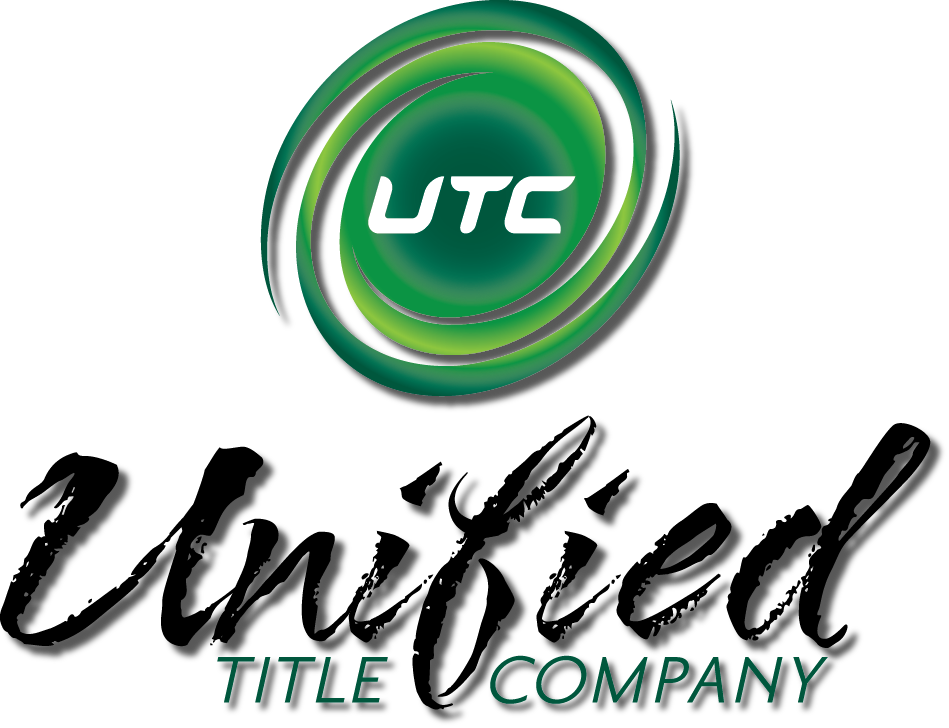About Title Insurance
When we say “Unified Title Company offers title insurance policies from multiple A-rated regional and national underwriters and we close and insure transactions in all 64 Colorado counties,” what do we mean? What is an underwriter…? what is title insurance…? what is a closing…? Browse the FAQs below for information about intersection between title and closing and the fascinating world of buying and selling real estate.
Resources At Your Finger Tips
From the basics to advanced topics… Get the answers to all of your title insurance questions.

FAQ About Title Insurance
What is a title insurance agent and what do you do?
Generally, our work begins when we are asked to insure a refinance or sale transaction. For a sale, the request will usually come from a real estate agent. For a refinance, a lender or mortgage broker will make the request.
Our involvement does not mark the beginning of the process – a buyer has already decided to make a purchase (and he or she is already under contract). A borrower has already decided to borrow and the chosen lender has agreed to make a loan. Because we enter transactions mid-stream, our success turns on our having good working relationships with the primary “sources of business” – attorneys, builders, developers, lenders and real estate agents.
Who are your underwriters?
Our Underwriters
Unified Title Company is a Colorado-based title insurance agent that is underwritten by the following national and regional underwriters –
- Chicago Title Insurance Company **
- Commonwealth Land Title Insurance Company **
- Old Republic National Title Insurance Company
- Stewart Title Guaranty Company
- Title Resources Guaranty Company
- Westcor Land Title Insurance Company
Learn more about our underwriters here.
What do I do if I have a title insurance claim?
Claims fall into one of two categories –
- An escrow matter (e.g., a proration error, or an unpaid invoice) can often be resolved quickly at the local office level by the closer or the office manager.
- A title matter (e.g., an unreleased lien) will usually require investigation by our title department and/or review by the policy underwriter.
A formal claim is initiated by providing written notice (“Notice of Claim”) describing the issue or issues. A Notice of Claim should include the claimant’s name, the subject property address and the file number for the transaction (located on the title commitment and most closing documents).
- For escrow matters, a Notice of Claim should be directed to the office that closed the transaction.
- For title matters, a Notice of Claim may be directed to the policy underwriter (contact information can be found on the policy jacket), or to the office that closed the transaction. A copy of the title policy should be included with a Notice of Claim related to a title matter.
Additional information may be required during the course of investigation of any claim. Please contact any of our offices for additional information about claims.
N.B. Some concerns are outside the scope of title insurance (e.g., damage to property caused by a fire is a hazard insurance matter) and some concerns that are within the purview of title are outside the scope of policy coverage (e.g., an encroachment onto an adjacent property may be a specific policy exception).
Who regulates title insurance companies?
Who pays for title insurance?
We have designed a table that illustrates the typical allocation of common closing fees associated with a Colorado real estate sale transaction. Fees listed in the table may not be part of a given transaction and allocation is ultimately governed by the agreement (the purchase and sale contract) between the buyer and seller.
Are there any discounts for title insurance?
Discount amounts vary based on property location (by county) and underwriter. The rationale for a premium discount falls into one of three categories –
- the subject property was previously insured within a certain period of time (examples of this discount category include the Short-Term Rate and the Re-Issue Rate);
- transaction principals fall within certain groups (examples of this discount category include the Builder Rate and the Non-Profit Rate); and
- bundled rate discounts.
What are Endorsements?
Endorsements are a discretionary means to expand owner and/or loan policy coverage.
An insured may wish simply to change standard policy coverage to a more comprehensive form. For example, most purchasers request (by stipulation in the purchase contract) that their owner’s policy be issued with owner’s extended coverage (“OEC”).
An insured may request an endorsement in order to undo a contraction of policy coverage that arises by circumstance. For example, a property may be affected by a mineral interest reserving for the holder of the interest the right to extract sub-surface minerals. Matters related to the reserved interest would otherwise be an exception to policy coverage. However, an insured may wish to endorse their policy to insure against damage to surface structures resulting from the removal of sub-surface minerals.
Learn More on our Endorsements page. Click here.
What is Owners Extended Coverage (OEC)?
A “basic” title insurance owner’s policy does not insure against loss related to the following items –
- parties in possession;
- unrecorded easements;
- survey matters;
- unrecorded mechanics’ liens;
- the “gap” (i.e., the time between the effective date of the last issued title commitment and the date the insured deed or deed of trust is recorded); and
- unpaid taxes, assessments and unredeemed tax sales prior to the year of closing.
Deleting, or insuring over, these “standard exceptions” makes for a policy with broader (greater) coverage. This greater coverage is referred to as owner’s extended coverage (“OEC”).
There are title requirements related to OEC. A closing affidavit addresses parties in possession and mechanics liens (items 1 and 4) among other matters. Payment at closing of any outstanding taxes and assessments, as shown on a tax certificate issued by the county treasurer, addresses item 6. An underwriter may require a survey if there are concerns about unrecorded easements or survey matters (items 2 and 3). Adverse matters appearing on a survey would be excluded from policy coverage.
In some circumstances an underwriter may refuse to delete one or more of the exceptions. For example, if a proposed insured property has new construction, an underwriter may refuse to delete the mechanics’ lien exception.
There is a charge for OEC (as with other policy endorsements). The amount depends on the type of property insured (i.e., commercial, residential or vacant land) and it may vary from underwriter to underwriter.
Is title insurance mandatory?
Title insurance is not mandatory. However, as a practical matter, title insurance and escrow (closing) services are a part of most real estate transactions. Most lenders who refinance loans, or provide the primary financing for real estate purchases will secure the loan with a mortgage (deed of trust) that is insured by a title company. Secondary financing (e.g., a line of credit) may be unsecured and/or uninsured.
As for an owner’s policy, a seller may insist on putting title insurance between him or herself and the buyer, or a buyer may insist on a policy to eliminate the need for a lawsuit directly against the seller (e.g., under deed warranties). The Colorado Real Estate Commission contract forms include a clause providing for a title insurance owner’s policy.
How are closing fees allocated?
Click here to see a table that illustrates the typical allocation of common closing fees associated with a Colorado real estate sale transaction. Fees listed in the table may not be part of a given transaction and allocation is ultimately governed by the agreement (the purchase and sale contract) between the buyer and seller.
What is a Deed?
Deeds recognized under Colorado law include, among other forms, warranty (general and special), quitclaim, confirmation (from a public trustee or sheriff) and personal representative. The use of a deed form may be dictated by circumstance (e.g., a sheriff delivers a confirmation deed pursuant to a judicial foreclosure), or by agreement between grantor and grantee. To the extent that deed form is a choice, the alternatives are distinguished by warranties (i.e., promises, or covenants) made by the grantor to the grantee.
Learn more about deed types. Click here.
What is a Promissory Note and Deed of Trust?
What is a power of attorney??
What is a short sale?
A short sale scenario arises any time the sum total of debt secured against a property exceeds the property’s current fair market value. This scenario is described euphemistically as being “upside-down” or “underwater.”
In a short sale, one or more secured creditors agree to accept less than the debt owed in order consummate the sale transaction. In general, a creditor’s willingness to accept less than what is owed is conditioned on two factors –
- the seller lacks the means to pay the debt in full at the time of closing; and
- the seller has a hardship (e.g., forced relocation) that creates an immediate need to sell the property.
Learn More about Short Sales. Click Here.
Of course a creditor accepting a short payoff will generally seek independent confirmation of the fact that secured debt exceeds the fair market value of the property.
What is a foreclosure?
In Colorado, a non-judicial process administered by Public Trustees is available to lenders foreclosing on deeds of trust. Liens other than deeds of trust (e.g., mechanics’ liens) must be foreclosed through the courts. The judicial process is similar to that described below.
Foreclosing on a deed of trust through the Public Trustee’s office is a process governed by statute. Article 38 of the Colorado Revised Statutes creates a timeline, beginning with the filing of a Notice of Election and Demand (“Notice”) and ending with the issuance of a Confirmation Deed to the holder of the Certificate of Purchase or the last Certificate of Redemption. Learning the timeline is an excellent starting point if you wish to understand the complexities of the foreclosure process. In addition to the timeline, you should remember the following rules:
- No liens are extinguished if the default is cured.
- All liens senior to that of the foreclosing lender survive foreclosure. First lien position is not a precondition to foreclosing. However, foreclosing from a junior lien position will leave the property subject to senior liens.
- The owner has a right to cure, but no right to redeem.
- Lien holders with liens junior to that of the foreclosing lender and recorded before the Notice have cure and/or redemption rights.
Learn more about foreclosures. Click here.
